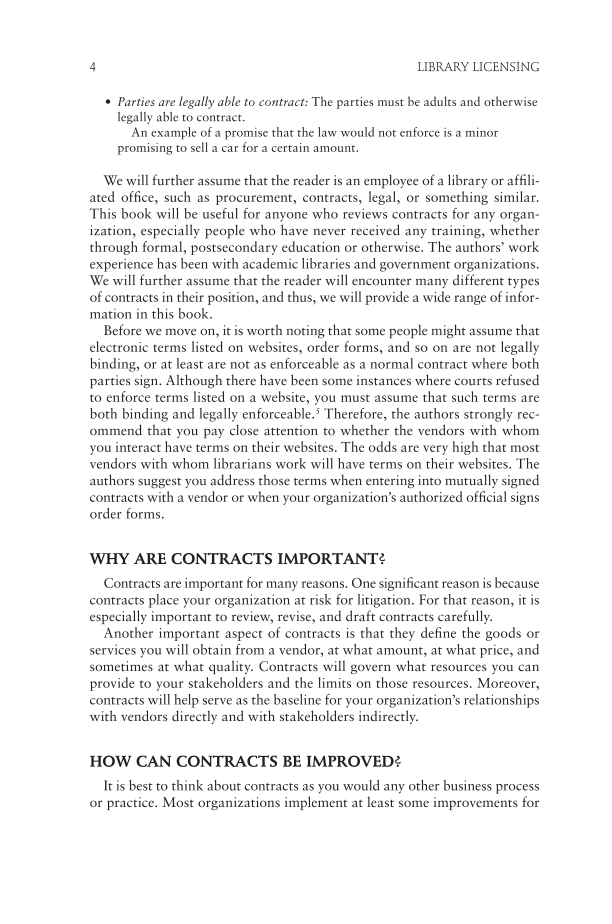4 LIBRARY LICENSING • Parties are legally able to contract: The parties must be adults and otherwise legally able to contract. An example of a promise that the law would not enforce is a minor promising to sell a car for a certain amount. We will further assume that the reader is an employee of a library or affili- ated office, such as procurement, contracts, legal, or something similar. This book will be useful for anyone who reviews contracts for any organ ization, especially people who have never received any training, whether through formal, postsecondary education or otherwise. The authors’ work experience has been with academic libraries and government organizations. We will further assume that the reader will encounter many different types of contracts in their position, and thus, we will provide a wide range of infor- mation in this book. Before we move on, it is worth noting that some people might assume that electronic terms listed on websites, order forms, and so on are not legally binding, or at least are not as enforceable as a normal contract where both parties sign. Although there have been some instances where courts refused to enforce terms listed on a website, you must assume that such terms are both binding and legally enforceable.5 Therefore, the authors strongly rec- ommend that you pay close attention to whether the vendors with whom you interact have terms on their websites. The odds are very high that most vendors with whom librarians work will have terms on their websites. The authors suggest you address those terms when entering into mutually signed contracts with a vendor or when your organization’s authorized official signs order forms. WHY ARE CONTRACTS IMPORTANT? Contracts are important for many reasons. One significant reason is because contracts place your organization at risk for litigation. For that reason, it is especially important to review, revise, and draft contracts carefully. Another important aspect of contracts is that they define the goods or services you will obtain from a vendor, at what amount, at what price, and sometimes at what quality. Contracts will govern what resources you can provide to your stakeholders and the limits on those resources. Moreover, contracts will help serve as the baseline for your organization’s relationships with vendors directly and with stakeholders indirectly. HOW CAN CONTRACTS BE IMPROVED? It is best to think about contracts as you would any other business process or practice. Most organizations implement at least some improvements for
Document Details My Account Print multiple pages
Print
You have printed 0 times in the last 24 hours.
Your print count will reset on at .
You may print 0 more time(s) before then.
You may print a maximum of 0 pages at a time.























































































































































































